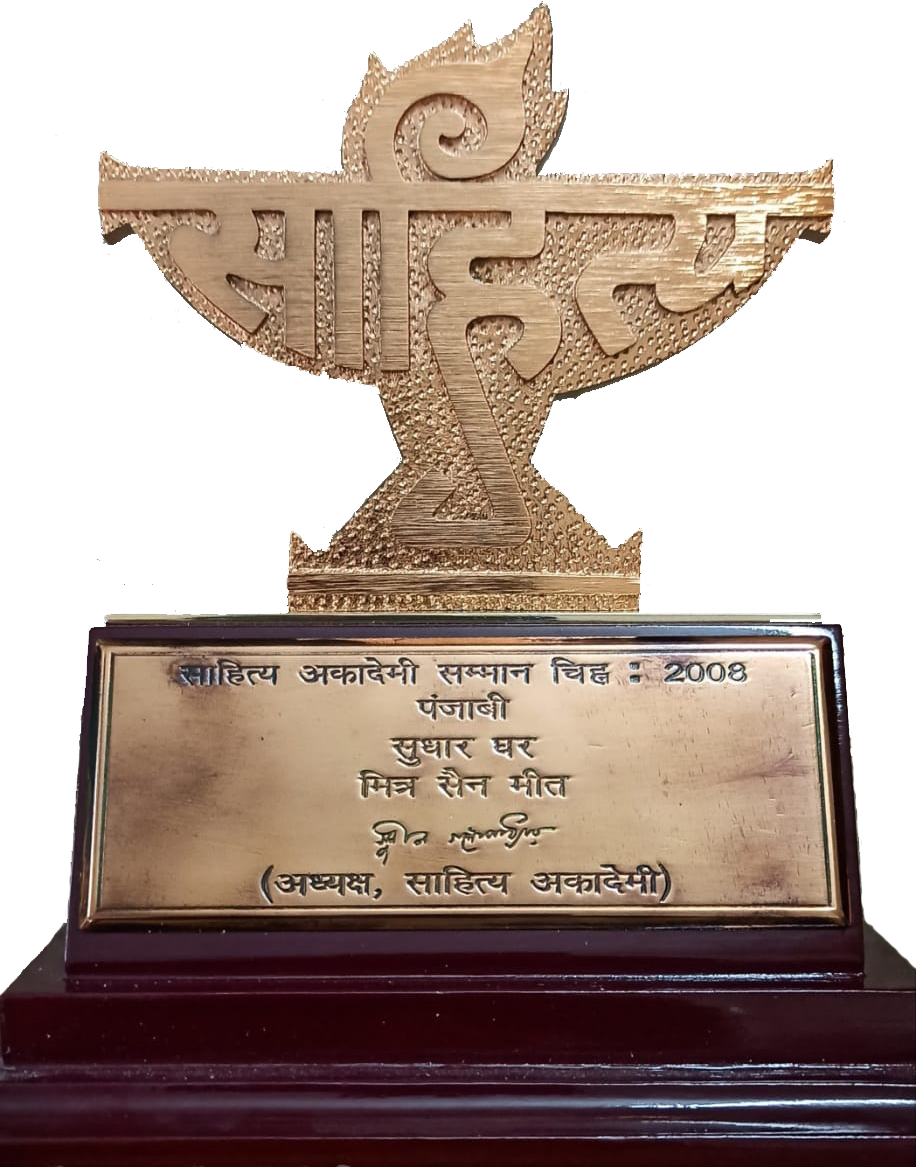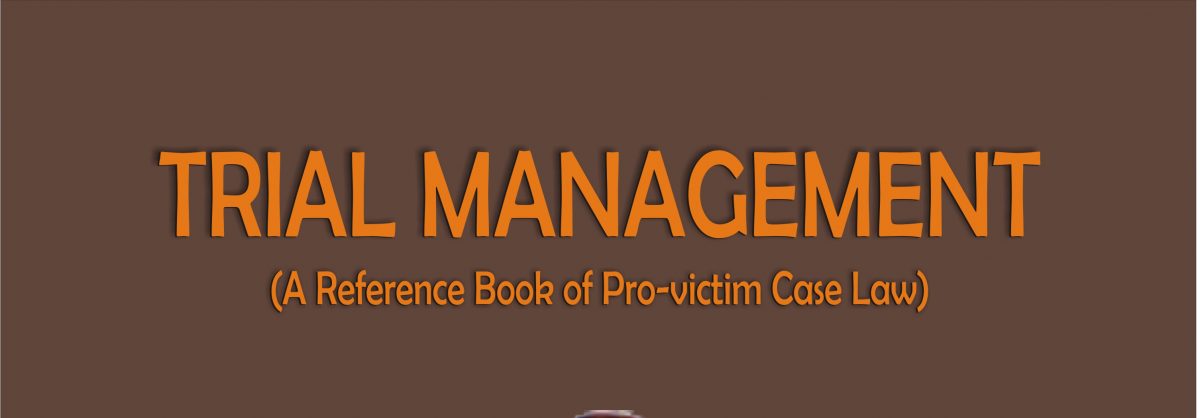ਦੋਸ਼ੀ ਠਹਿਰਾਉਣ ਵਾਲੇ ਫੈਸਲੇ ਨੂੰ ਨਿਲੰਬਿਤ ਕਰਨਾ (Suspension of conviction)
(Section 389 Cr.P.C.)
ਦੋਸ਼ੀ ਨੂੰ ਸਜ਼ਾ ਕਰਦੇ ਸਮੇਂ ਅਦਾਲਤ ਵੱਲੋਂ ਜੋ ਫੈਸਲਾ ਸੁਣਾਇਆ ਜਾਂਦਾ ਹੈ ਉਸਦੇ ਦੋ ਹਿੱਸੇ ਹੁੰਦੇ ਹਨ। ਪਹਿਲੇ ਹਿੱਸੇ ਵਿੱਚ ਦੋਸ਼ੀ ਨੂੰ ਮੁਜ਼ਰਮ ਕਰਾਰ ਦਿੱਤਾ ਜਾਂਦਾ ਹੈ। ਦੂਜੇ ਹਿੱਸੇ ਵਿੱਚ ਦੋਸ਼ੀ ਵੱਲੋਂ ਕੀਤੇ ਜ਼ੁਰਮਾਂ ਦੀ ਸਜ਼ਾ ਸੁਣਾਈ ਜਾਂਦੀ ਹੈ। ਦੋਸ਼ੀ ਵੱਲੋਂ ਅਪੀਲ ਕੀਤੇ ਜਾਣ ਤੇ ਅਦਾਲਤ ਵੱਲੋਂ ਆਮ ਤੌਰ ਉੱਪਰ ਦੋਸ਼ੀ ਦੀ ਸਜ਼ਾ ਹੀ ਮੁਅੱਤਲ ਕੀਤੀ ਜਾਂਦੀ ਹੈ। ਸਜ਼ਾ ਮੁਅੱਤਲ ਹੋਣ ਨਾਲ ਦੋਸ਼ੀ ਨੂੰ ਫੌਰੀ ਤੌਰ ਤੇ ਜੇਲ੍ਹ ਨਹੀਂ ਜਾਣਾ ਪੈਂਦਾ ਪਰ ਉਸਦਾ ਮੁਜ਼ਰਮ ਘੋਸ਼ਿਤ ਹੋਣਾ ਬਣਿਆ ਰਹਿੰਦਾ ਹੈ। ਮੁਜ਼ਰਮ ਘੋਸ਼ਿਤ ਹੋਣ ਨਾਲ ਉਸਨੂੰ ਜਿਹਨਾਂ ਸਹੂਲਤਾਂ ਅਤੇ ਪਦਵੀਆਂ ਤੋਂ ਵਾਂਝੇ ਹੋਣਾ ਪੈਂਦਾ ਹੈ ਉਹ ਵਾਂਝਾਪਨ ਜਾਰੀ ਰਹਿੰਦਾ ਹੈ। ਜੇ ਅਦਾਲਤ ਮੁਜ਼ਰਮ ਘੋਸ਼ਿਤ ਕਰਨ ਵਾਲੇ ਹੁਕਮ ਨੂੰ ਵੀ ਮੁਅੱਤਲ ਕਰ ਦੇਵੇ ਤਾਂ ਦੋਸ਼ੀ ਨੂੰ ਇੱਕ ਵਾਰ ਫਿਰ ਬੇਕਸੂਰ ਸਮਝ ਲਿਆ ਜਾਂਦਾ ਹੈ। ਮੁਜ਼ਰਮ ਘੋਸ਼ਿਤ ਹੋਣ ਬਾਅਦ ਉਸਨੂੰ ਜਿਹਨਾਂ ਸਹੂਲਤਾਂ/ਪਦਵੀਆਂ ਤੋਂ ਵਾਂਝਾ ਕੀਤਾ ਜਾ ਸਕਦਾ ਹੈ, ਉਹ ਵਾਂਝਪਨ ਵੀ ਦੂਰ ਹੋ ਜਾਂਦਾ ਹੈ।
- ਅਪੀਲ ਸੁਣ ਰਹੀ ਅਦਾਲਤ ਨੂੰ ਦੋਸ਼ੀ ਨੂੰ ਸਜ਼ਾ ਸੁਣਾਉਣ ਵਾਲੇ ਹੁਕਮ ਨੂੰ ਨਿਲੰਬਿਤ ਕਰਨ ਦਾ ਅਧਿਕਾਰ ਹੈ। ਪ੍ਰੰਤੂ ਇਸ ਅਧਿਕਾਰ ਦੀ ਵਰਤੋਂ ਕੇਵਲ ‘ਵਿਸ਼ੇਸ਼ ਕਿਸਮ ਦੇ ਕੇਸਾਂ’ ਵਿੱਚ ਹੀ ਕਰਨੀ ਚਾਹੀਦੀ ਹੈ।
Case (i) : Rama Narang v/s Ramesh Narang (1995)2 SCC 513(SC – FB)
Para “19. ….. when an appeal is preferred under S. 374 of the Code the appeal is against both the conviction and sentence and, therefore, we see no reason to place a narrow interpretation on S. 389(1) of the Code not to extend it to an order of conviction…”
Case (ii) : Ravi Kant S. Patel v/s Sarvabhouma S. Bagali, 2006(1) JT(SC) 578 (SC – FB)
Para “11. It deserves to be clarified that an order granting stay of conviction is not the rule but is an exception to be resorted to in rare cases depending upon the facts of a case. . . . . . .”
Case (iii) : Navjot Singh Sidhu v/s State of Punjab & Another, 2007 Cri. L.J.1427 (SC)
Para “3. ….. The legal position is, therefore, clear that an appellate Court can suspend or grant stay of order of conviction. But the person seeking stay of conviction should specifically draw the attention of the appellate Court to the consequences that may arise if the conviction is not stayed. Unless the attention of the Court is drawn to the specific consequences that would follow on account of the conviction, the person convicted cannot obtain an order of stay of conviction. Further, grant of stay of conviction can be resorted to in rare cases depending upon the special facts of the case.”







More Stories
ਮੁਕੱਦਮਿਆਂ ਦੀ ਸੁਣਵਾਈ(Trial of cases)
ਕਿਸੇ ਵਿਅਕਤੀ ਨੂੰ ਮੁਕੱਦਮੇ ਵਿੱਚ ਦੋਸ਼ੀ ਬਣਾਉਣਾ( Arraigning a person as accused)
ਧਾਰਾ 195 ਦੀ ਮਨਾਹੀ (Prohibition of Section 195)